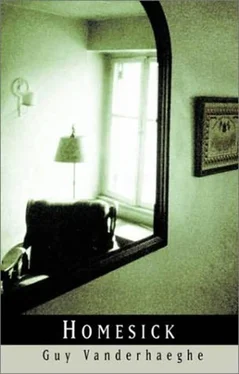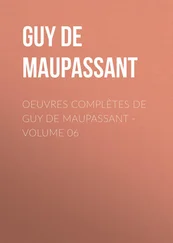After the war, the custom of putting a mark on the wall had not ended but it had altered. People wrote things other than names and dates, so that the wall, like the peace itself, grew more disorderly. The brick swarmed with autograph-book rhymes ( Love many, trust few/Always paddle your own canoe ), insults ( Walter Herbert is a stock diddler ), declarations of love ( John R. & Sharon S., Eternally ).
Now once again finding himself facing the wall, as he has so many times in recent evenings past, Daniel can’t explain why standing here makes him feel less lonely, less apart. Maybe it’s the feeling that he is on the threshold of a room, crowded and noisy and bustling with life, a party which has been running for years.
Seeing his uncle’s name up there also helps him to feel somehow part of it. It’s the only name on the wall he can put a face to. He’s seen his mother’s snapshot of his uncle, a boy in his baseball uniform. In fact, he recently asked to look at it again to search it for some resemblance to himself. His grandfather keeps slipping and calling him Earl.
His uncle’s name is high on the wall, so high Daniel has to tilt his head way back to find it. Earl Monkman, May 2, 1946 , the wall says, Forever and Beyond . He had told his mother about discovering his Uncle Earl’s name on the wall and asked her what Forever and Beyond might mean. She had laughed. “There must have been another name you missed,” she had said. “It was something we used to write as teenagers. Arnold and Mabel, Forever and Beyond . It meant undying love. The next time you’re there find the other name and let me know who it is. I’d be curious to know.”
Daniel had checked. But there was no other name linked to his uncle’s. Only Earl Monkman, May 2, 1946, Forever and Beyond .

For Vera, peace proved to be a great confusion. In the months following the end of the war she began to suspect that life in the Army had cruelly unsuited her for what she now had to face. Being a sergeant had taught her that she preferred giving orders to taking them. Already it was becoming clear that women were expected to quickly lose that acquired taste.
Vera could not bring herself to look for work. It was because she found herself always tired now, an affliction so severe that it made life scarcely seem worth living. Hers was a terrifying condition; she did not know what was happening to her. Finally, when her situation grew desperate enough, Vera decided the answer was a holiday, she must have a complete rest. So she checked into a swank hotel in Toronto. To pay for this extravagance she drew on three years of savings and her $349.65 of discharge pay. For the first time in years, Vera bathed and slept in absolute privacy. She had meals sent up by room service and ate them off her lap, sitting in a chair by the window, watching the throngs flocking the sidewalks and the metal torrent of traffic roaring in the street below. It all seemed to have nothing to do with her.
Endeavouring to feel as fresh and optimistic as those people looked, she bought herself perfume, two smart expensive suits, ordered cut flowers for her room, and went to the beauty parlour downstairs for a cut and a perm. Nothing helped. After those initial bold excursions Vera did not leave her room again until her money ran out.
Not that she didn’t try. Her goal was to have dinner downstairs, in the dining room, in the midst of other people. Each afternoon she began to make her preparations. She needed plenty of time to get ready because the slightest effort had become exhausting. Around three o’clock in the afternoon she started with eyebrow plucking, lipstick, and face powder. At four, stockings were rolled up what seemed like miles and miles of leg, and garters were fastened. Next, she picked every blessed speck of lint from her new skirt and jacket, bit by bit, with her fingernails. Finally, it came time to dress. But before she did that it was necessary to pause, to close her aching eyes for just a second. So Vera would stretch herself out on her bed in her bra and panties, and the voices of people passing in the corridor outside her room would come drifting through the open transom, lulling voices that murmured on and on, that pitched her into a thick tangle of dreamless sleep from which she only awoke, shivering, long after midnight, long after the dining room was closed and there was nothing else to do but crawl between the sheets and promise herself. Tomorrow, tomorrow, the dining room.
But the money disappeared, and tomorrow was Mrs. Konwicki’s rooming-house. The day Vera moved in, smuggling a frying pan and second-hand hot plate in her biggest suitcase past the landlady with the flabby, baked-red arms of a domestic bully, was the day she suspended her correspondence with Earl. After all her bragging about the Waldorf-Astoria and the advantages of a uniform she was not about to confess to Earl it had all ended in a cheap rooming-house. Vera was ashamed. And to lie about her present circumstances would have meant that she didn’t regard them as purely temporary. Things would soon look up. When she was back on the rails, a success again, she would resume writing to her brother and send him her address. However, things were so long in looking up that in the end she lost track of him.
With all her money gone, she had no choice but to look for work. The exhaustion that showed in her face and wilted her carriage was a disadvantage applying for jobs. So, too, were her Army discharge papers which listed her trade as cook. When she explained that she had been more of a kitchen manageress than cook, interviewers either looked indulgent or sceptical.
Once, after being turned away yet again, she had said angrily to the man who had interviewed her, “I thought veterans could be expected to be shown preference.”
The man said, “Do you really consider yourself a veteran? A veteran like a man who risked his life on a battlefield? What are you a veteran of?”
Still, she continued on, applying for positions she had no hope of getting. She did this as much to escape the rooming-house as for any other reason. Vera hated it there. It smelled of dusty cocoa-matting and the Polish Princess’s little shitter, Stanny. Stanislaus was Mrs. Konwicki’s daughter’s gift from the angels, a three year old who ran up and down the hallways persecuting his grandmother’s lodgers, banging on the closed doors behind which old men coughed day and night, a dill pickle which he’d sucked white poking out of fat, rosy baby lips, and the odour of stale poop following him wherever he went.
One afternoon as Vera sat on a bench in a park it began to drizzle. Unable to bear the thought of being driven back into her musty room, she got to her feet and started to walk, walking in a rain not feeling nearly as cold, melancholy, and dispiriting as sitting in one. An hour of trudging brought her to the doors of a movie theatre. By then she was soaked, her hair hanging in strings, her shoes and stockings soggy, her teeth chattering. The price of a matinee was cheap to escape what had become an icy shower.
As she paid for her ticket, Vera read a small notice taped to the glass of the booth announcing that the theatre was seeking a presentable young man or woman to assist in seating patrons. Apply in person to Mr. A.J. Buckle, Theatre Manager. An old theatre that had once presented touring operettas, vaudeville, and melodramas before being converted into a cinema shortly before the Great War, it retained certain vestiges of opulent, crusty glory: a tracked and faded lobby carpet that had once been a lush scarlet, brass handrails on all stairs, and curtained smoking-loges whose mahogany trim was scarred with cigarette burns and jack-knife hearts and initials. In her opinion it was romantic, had style. On the spur of the moment Vera decided she would apply.
Читать дальше













